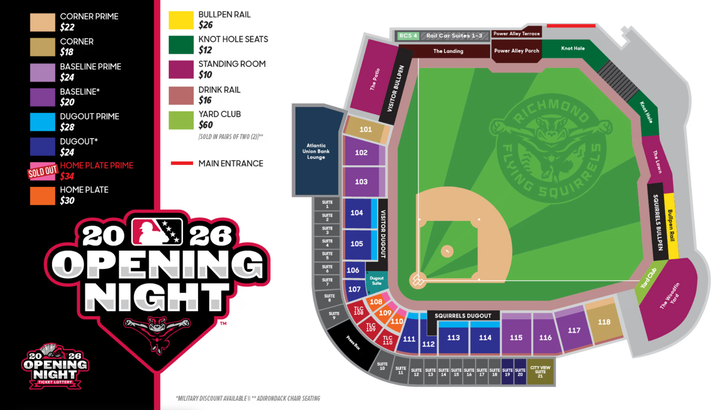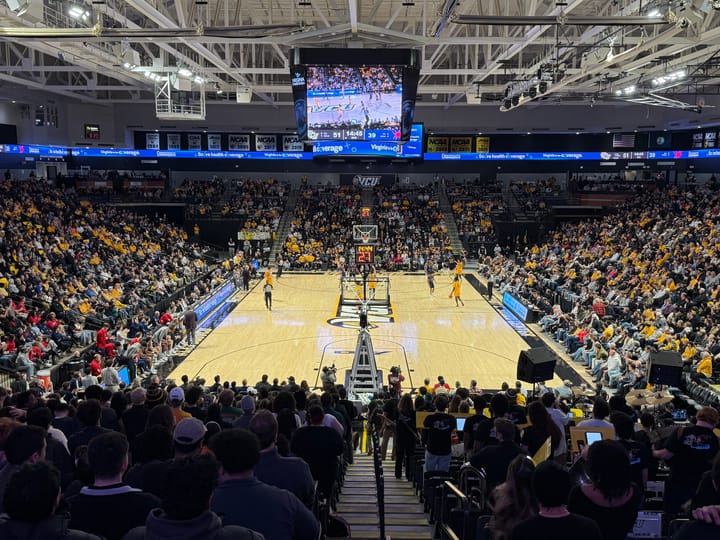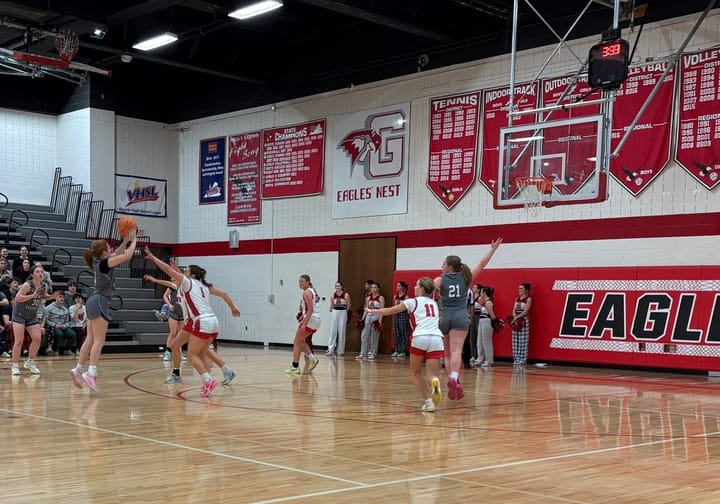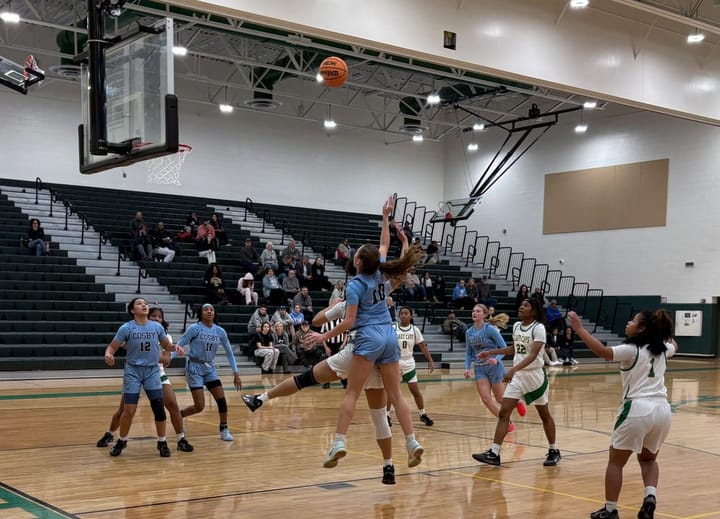At VCU and JMU, athletic success drives interest in the university
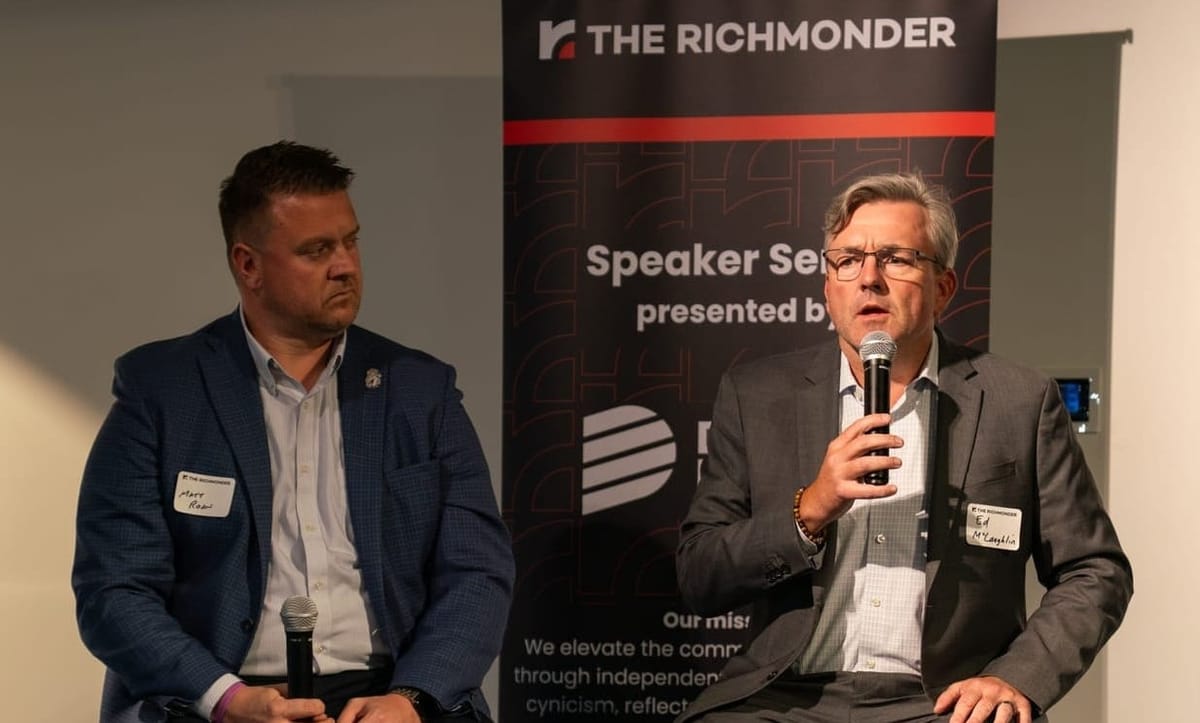
VCU Director of Athletics Ed McLaughlin opened Tuesday night's panel discussion on paying college athletes with a blunt declaration.
"Amateur athletics is dead," he said. "But I still believe in the college experience for student-athletes."
McLaughlin was joined by JMU Director of Athletics Matt Roan, who agreed that even as some student-athletes receive payments which seemed unfathomable less than a decade ago, he's still committed to ensuring they have a full college experience in Harrisonburg.
"We don't believe that the word student-athlete is archaic yet," he said. "We still think that it's in its proper order, and we emphasize that. You are a part of this institution, not apart from it."
The two leaders convened as part of The Richmonder's Speaker Series, presented by Dominion Energy.
As they lobbied for greater oversight and more guardrails on the process, they also noted the opportunities that athletics provide for their universities.
Roan referenced the saying that athletics are a school's "front porch," by which they are visible to the outside world and alumni.
"Now, I will be the first person to say that the front porch is not the most important room in the house, right?" he said. "It's the rooms inside of it, and that's where the teaching, the learning, all of those things are happening — where again, lives are transformed.
"But I think both of our places are not really encountering the enrollment cliff that other places are encountering, largely because of the success of our athletics programs. Our donors give because they're satisfied with the quality of our athletics program. So a strong athletics program, I think, is an indicator of a strong institution."
McLaughlin noted that VCU has world-renowned research programs, but most people nationally came to know the school through its men's basketball program, particularly its run to the Final Four in 2011.
"When your name is called on Selection Sunday on CBS, and there are 200 million people watching the NCAA basketball tournament, then that puts a spotlight on your campus," he said. "So then it allows you to do the things like talk about how great things are in the Massey Cancer Center, our School of Engineering, the Children's Hospital of Richmond.
"It shines the light on all those other things, but it's critically important to have a sports program."
McLaughlin believes that not having a football program can be an advantage for VCU in that it can devote more resources to men's basketball.
Asked how much money it takes to be competitive, he suggested that player compensation alone this year might be between $4.5 million and $8 million for a top-40 team.
That money is life-changing for the student-athletes, who can make several hundred thousand dollars just for one season of college basketball. McLaughlin said he wants to make sure VCU is putting an educational system in place for the athletes.
"What an incredible opportunity it is for our young men and women who have this, that they can leave college with a financial foundation that a lot of students in general don't," he said. "We talk about student debt, it's one of the biggest issues in college right now. We're trying to prepare our students, and I tell our students all the time: Use basketball, do not let basketball use you. Use that to create a platform for yourself."
Roan said Virginia's athletic directors meet regularly by Zoom to discuss the changing world, but at the school level, their actions are largely reactionary, as they can't set policy on their own, only advocate for it.
As JMU's football program gains national recognition, and the players become better compensated as a result, he said it's important to communicate to the school's other athletes and employees that the football team's success is producing opportunities university-wide.
"With the money, with the change, how do you continue to do what we signed up to do in the very beginning?" he asked. "To me, that boils down to people. You've got to recruit the right student-athletes who have to be coached and supported by the right coaches and staff.
"And I think they have to exist on a campus where they're not just a number, right? But that the faculty, the staff, the people who support our programs on a daily basis, genuinely care. They're celebrating the fact that, you know, Player 1 might be getting $100,000, and they don't resent them for that. They look at everything that we're doing as additive, making a more complete student-athlete experience, and this is a part of it."
Both agreed that their jobs have transformed to put an even greater emphasis on fundraising, given the additional financial demands of the past few years.
And while McLaughlin acknowledges that many fans are unhappy with recent changes, he doesn't think the toothpaste can go back in the tube.
"The world has fundamentally changed," he said. "It's never going back."
Contact Michael Phillips at mphillips@richmonder.org. Dominion Energy and VCU are Richmonder sponsors, but did not influence or review this story.


